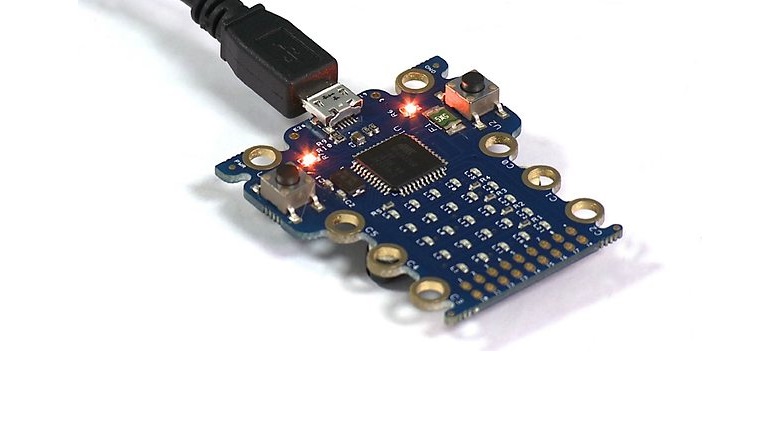BBC teaches coding with Micro Bit for every student
One million Micro Bits will be handed out to boost computing curriculum


The BBC is looking to help children learn to code by handing out one million computing devices to British students.
As part of its Make it Digital campaign, which aims to inspire students to take up IT and tech subjects, the BBC has unveiled the Micro Bit, a "coding device" that will help students learn how to programme.
The devices will be given free to every Year 7 student in the country, with a million handed out starting next year.
Alongside the Micro Bit, the BBC is developing a season of dedicated television programs, including a drama based on Grand Theft Auto yes, really and a documentary on Bletchley Park.
It's also sponsoring traineeships for 5,000 young unemployed people, partnering with 50 tech organisations, and developing education activities and content for the classroom and online.
"This is exactly what the BBC is all about - bringing the industry together on an unprecedented scale and making a difference to millions," said Tony Hall, BBC Director-General. "Just as we did with the BBC Micro in the 1980s, we want to inspire the digital visionaries of the future."
The BBC's Micro Bit
Get the ITPro daily newsletter
Sign up today and you will receive a free copy of our Future Focus 2025 report - the leading guidance on AI, cybersecurity and other IT challenges as per 700+ senior executives
The BBC developed the Micro Bit alongside 25 partner organisations, and will hand out a million of the devices for free to Year 7 students from autumn 2015.
The Micro Bit is still in development, but the BBC released a few details. Small enough to be turned into a wearable device, it's an ARM-based micro-controller device with an LED display that can be plugged into a computer to start programming it easily.
It's more of a micro controller than micro computer, and not a replacement for the likes of the Raspberry Pi, however indeed, it can connect and communicate with the Raspberry Pi, as well as Arduino computing boards, and Intel's Galileo.
"BBC and its partners recognised that a hands-on learning experience could help children grasp the new Computing curriculum in ways that other software and traditional classroom learning couldn't," the BBC said in a statement. "In particular, the Micro Bit can help learners develop an intuitive understanding of physical concepts in technology and computing, which helps develop complex thinking, analytical and problem-solving strategies."
Freelance journalist Nicole Kobie first started writing for ITPro in 2007, with bylines in New Scientist, Wired, PC Pro and many more.
Nicole the author of a book about the history of technology, The Long History of the Future.
-
 Should AI PCs be part of your next hardware refresh?
Should AI PCs be part of your next hardware refresh?AI PCs are fast becoming a business staple and a surefire way to future-proof your business
By Bobby Hellard
-
 Westcon-Comstor and Vectra AI launch brace of new channel initiatives
Westcon-Comstor and Vectra AI launch brace of new channel initiativesNews Westcon-Comstor and Vectra AI have announced the launch of two new channel growth initiatives focused on the managed security service provider (MSSP) space and AWS Marketplace.
By Daniel Todd